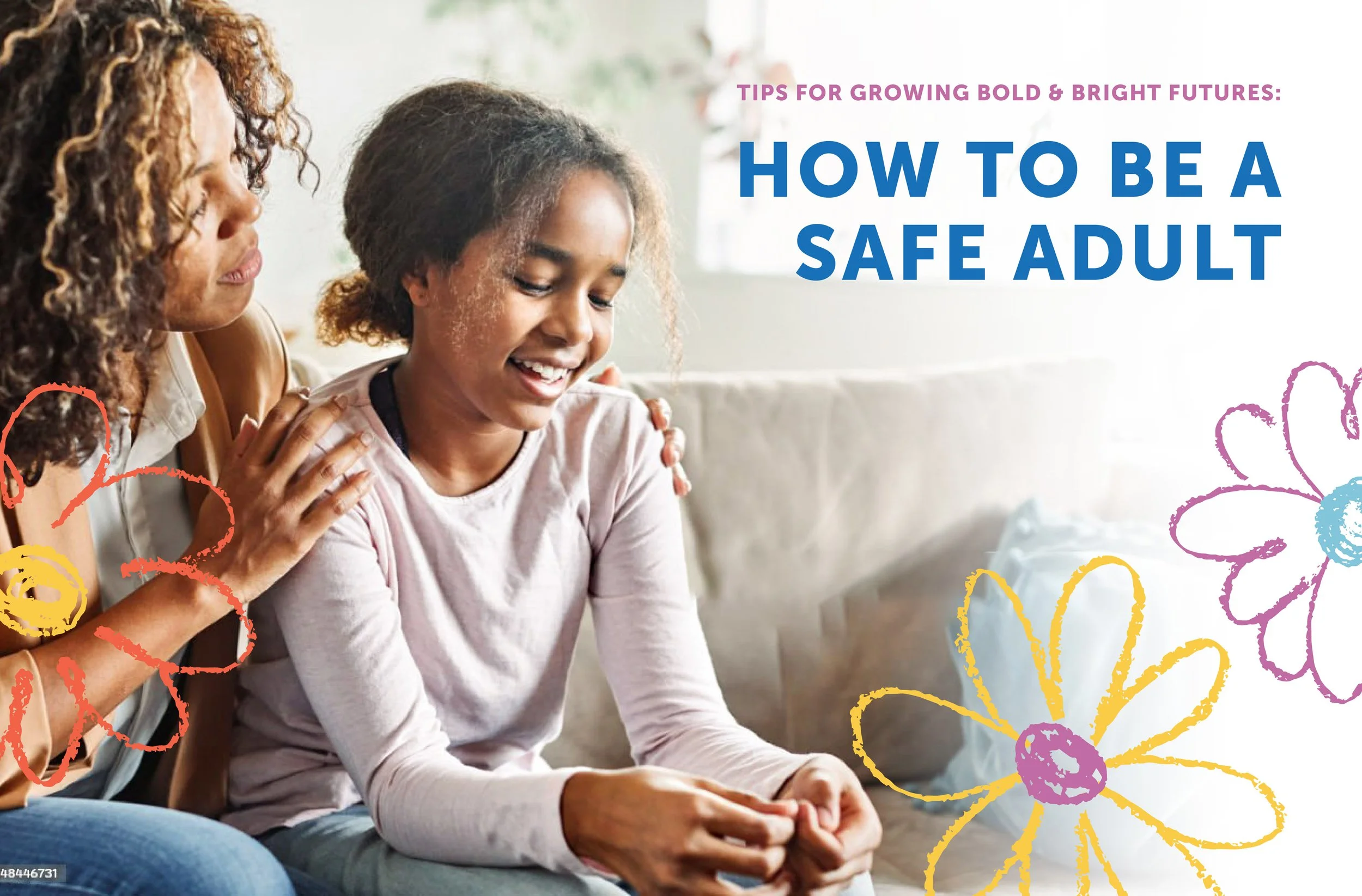How to Be a Safe Adult
Tips for Growing Bright and Bold Futures: How Safe Adults Can Conserve the Childhood Experience
Safe adults are critical to disrupting child abuse. It is the responsibility of adults to protect and advocate for the wellbeing of our community kids. The earliest intervention possible maximizes the conservation of the childhood experience, ensuring kids can move towards a brighter, healthier future not consumed by abuse.
What is a safe adult?
A safe adult is someone a child can go to for support with anything that makes the child feel uncomfortable or unsafe. In our Kids Have Rights: Child Abuse Prevention presentations, we consistently point kids back to their safe adults and encourage them to go to their safe adult with questions and concerns. We want kids to honor the instincts they have and reach out for help if they have a sense something is wrong. It is important to equip adults with the tools necessary to support a child that chooses them as their safe person in order to maximize healing and wellbeing moving forward.
A safe adult:
Listens carefully to the child’s concerns
Clearly communicates they believe and support the child
Affirms the child did the right thing by speaking up and doesn’t dismiss what the child shares as invalid
Makes the child comfortable to talk about difficult things by controlling their own emotions and reactions
Reassures the child they are not in trouble or at fault
Doesn’t make promises about the future and what might happen next
Can be trusted to appropriately get the child help if they are hurt or unsafe
Believes it is the adult’s responsibility to protect children and act in their best interest
Takes action right away and knows how to report abuse
Why do we say “safe adult” rather than “trusted adult?”
The unfortunate reality is that many victims of abuse have been hurt by adults they trust. A safe adult is someone they know will support and protect them with concerns about safety along with being trustworthy.
Who can be safe adults?
Parents, relatives, teachers, principals, therapists, coaches, mentors, or anyone else that cares about the child and is committed to keeping kids safe.
What are the potential risks of a child not receiving support or care from a safe adult when disclosing abuse?
If a child discloses and is not met with support, they may blame themselves for the abuse, be further traumatized, doubt their instincts, believe the abuse is justified or normalized since there wasn’t an appropriate reaction, or decide not to speak up again given the invalidating response. The threat of lasting psychological harm is significant for a child who is not met with support, belief, and action when making the bold, brave decision to tell someone about abuse.

